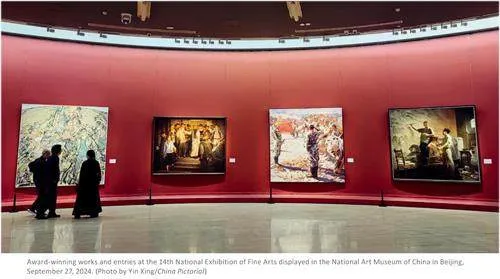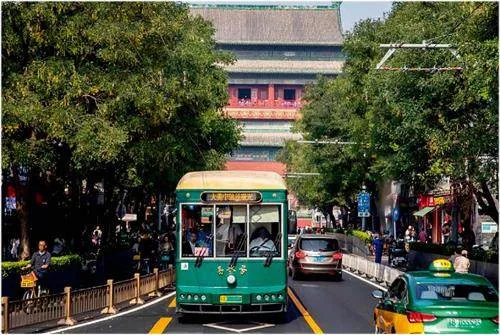An Ode to the Ordinary


Held once every five years since 1949, the National Exhibition of Fine Artsseeks to present a panoramic view of fine arts and designs across the country.
This year, it was held at the National Art Museum of China and the NationalMuseum of China, where prize-winning works and various other entries were ondisplay until October 24.
Paintings, sculptures, prints, installations, animations, mixed-media, andgraphic and industrial designs were all displayed to show an intensified integrationof art and technology.
Depicting the greatness of ordinary people and hailing their spirit are at thecore of the National Exhibition of Fine Arts, said Fan Di’an, chairman of theChina Artists Association. He commented that many selections this year depictpeople making a difference—those who engage in poverty alleviation, ruralrevitalization, environmental protection, and other endeavors
Ringing Through Time
All along the Beijing Central Axis, pedestrians can now hear dang-dangsightseeing buses passing, so named after the copper bell that rings toannounce their presence. The cultural mainstay has become more prominentsince the area was added to the UNESCO World Heritage List in July thisyear.
Since the debut of the dang-dang sightseeing bus service in August, 41such vehicles have transported an average of 4,000 visitors daily, underscoringthe enduring appeal of this unique experience, said Yun Haibing, director ofthe Beijing Tourism Distribution Center’s market management department.
Offering a nostalgic voyage through Beijing’s storied past, dang-dang busestraverse iconic landmarks including Zhengyang Gate, the Temple of Heaven,Tian’anmen Square, the Forbidden City, and Jingshan Park.
During the National Day holiday from October 1 to 7, eight sightseeingbus routes handled peak flow, completing 297 departures per day and serving98,000 tourists in total, according to Yun.

